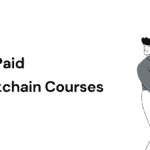Key takeaways:
- Avraham Eisenberg’s legal team stated that because of his disagreement with Mango DAO had previously been resolved.
- Mango claimed the agreement should be thrown out because Eisenberg was not engaged in lawful negotiating and was reached under duress.
Avraham Eisenberg, the accused Mango Markets exploiter, is vying for ownership of the cryptocurrency obtained from his purportedly extremely successful trading approach.
On February 15, Eisenberg’s legal team submitted a motion in a New York District Court objecting to a lawsuit by Mango that seeks $47 million in damages plus interest beginning at the time of Eisenberg’s October attack, which drained almost $117 million from the protocol.
The attorneys said that because Eisenberg signed a settlement agreement with Mango DAO, the matter was resolved, and Eisenberg shouldn’t be required to repay any additional monies to the DeFi platform.
Following the depletion of its treasury, the Mango DAO approved a governance proposal that allowed Eisenberg to retain a portion ($47 million) of the stolen cash as a bug reward in exchange for Mango agreeing not to file a lawsuit. The attorneys wrote:
“Weeks later, eligible Mango Markets’ members received reimbursement from the Mango Markets treasury. At that point, all involved considered this matter closed and Mr. Eisenberg heard nothing further from Mango Markets.”
In a court document filed, Eisenberg’s attorneys claimed that he fulfilled his part and that qualifying Mango Markets members received payment from the company’s treasury:
“At that point, all involved considered this matter closed and Mr. Eisenberg heard nothing further from Mango”
However, Mango claimed in its lawsuit that the agreement should be thrown out because Eisenberg was not engaged in lawful negotiating and was reached “under duress.”
These allegations were rejected by Eisenberg’s attorneys, who claimed that any purported irreparable loss was undermined by Mango’s “improper three-month delay” in initiating its lawsuit. They assert that the lawsuit seeks to advantage Eisenberg’s December arrest in Puerto Rico by American officials.
According to the Federal Bureau of Investigation, Eisenberg has been accused of manipulating and fraud in the commodities market. He is also being sued by the Securities and Exchange Commission and the U.S. Commodity Futures Trading Commission, who claims he broke securities laws pertaining to anti-fraud and market manipulation. The U.S. Commodity Futures Trading Commission claims he manipulated the market.
Previously, Eisenberg has claimed that his trades on Mango were legitimate open market transactions, adding that he used the protocol in line with its design and that his alleged attack was a “highly profitable trading strategy.”









